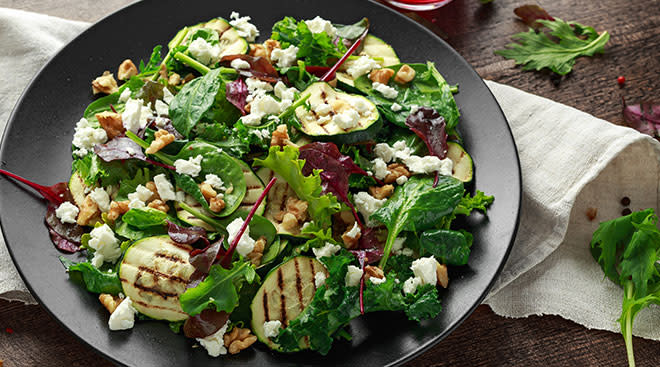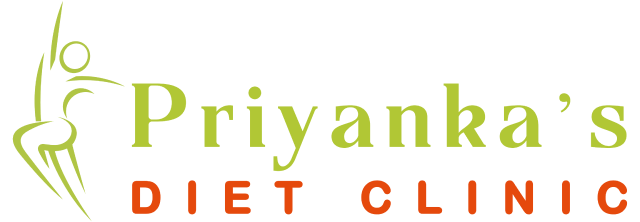Best Diet for Breastfeeding Mothers – As a breastfeeding mother, it is important to prioritize your health and provide yourself with the knowledge and support essential to make this journey beautiful and fulfilling. This complete guide will explore the Best Diet for Breastfeeding Mothers, giving precious insights and details to help your health and your baby’s development. Breastfeeding is a special and close bond between a mother and her child. Not only does it offer necessary nutrients for your baby’s development and growth, but it also provides various benefits for your health and welfare. Being attentive to a nutritious and maintained diet can improve your breastfeeding experience and make sure that you and your baby receive the nutrients essential for ideal health. 
In addition to discussing the Best Diet for Breastfeeding Mothers, we will also cover necessary topics such as the things to avoid while breastfeeding, healthy snack plans for busy moms, and tips for keeping a healthy breastfeeding diet. We will dive into the important nutrients during this condition, involving healthy fats, calcium, iron, proteins, and omega-3 fatty acids. By taking these nutrients into your diet, you can give your body the fuel it requires to help lactation and ensure the welfare of both you and your little one. Moreover, always remember, that every mother’s journey is different, and it is important to listen to your body’s requirements and discuss with healthcare professionals as required. Let this complete guide be your partner as you steer the beautiful world of breastfeeding and explore the best foods to enhance this lovely bond with your baby.
The Best Diet for Breastfeeding Mothers
As a breastfeeding mother, being attentive to taking nutrient-dense foods that give the essential energy and nutrients for you and your baby is important. Here are some of the best foods to include in your breastfeeding diet plan:
- Legumes and Pulses – Legumes and pulses such as black beans, lentils, chickpeas, and kidney beans are great plant-based fiber, proteins, and iron sources. They offer a comfortable release of energy and support to preventing iron-deficiency anemia a basic concern for many new mothers. Including these foods in your diet plan can help your overall energy levels and make sure you complete iron stores.
- Dairy Products – Dairy products are amazing calcium sources that are important for keeping strong bones and teeth. Choose low-fat milk, yogurt, and cheese to satisfy your calcium needs. If you are lactose intolerant or choose non-dairy elements, fortified plant-based milk and calcium-rich foods like tofu and leafy greens can be amazing elements.
- Water and Hydration – Staying hydrated is important while breastfeeding. Drink enough water during the day to help milk production and prevent dehydration. Set a goal for around 8 cups (64 ounces) of water regularly. But listen to your body’s thirst sign and improve your consumption as required.
- Oats and Whole Grains – Oats and whole grains are great sources of compound carbohydrates, which offer enough energy for your body. They are also rich in fiber. Which helps digestion and helps prevent constipation. Start your day with a full bowl of oatmeal or enjoy brown rice, whole grain bread, and quinoa as part of your diet.
- Healthy Fats – Including healthy fats in your diet is important for brain growth and hormone production. Include foods such as nuts (almonds and walnuts), avocados, seeds (chia seeds and flaxseeds), and olive oil. These fats also give the feeling of energy and satisfaction.
- Colorful Fruits and Vegetables – Fill your plate with many colorful fruits and vegetables to ensure a huge range of vitamins, minerals, and antioxidants in your meal. Leafy greens like spinach and kale, bright berries, sweet potatoes, carrots, citrus fruits, and bell peppers are great choices. These foods offer necessary vitamins, including vitamins C and A, which are important for your health and your baby’s growth.
- Lean Proteins – Incorporating lean proteins into your diet is important for repairing and building tissues. Go for lean protein sources such as turkey, fish, eggs, tofu, chicken, and legumes. These foods give amino acids for milk creation and help you feel full for longer times.
Note: these foods cater as a common guide, and listening to your body’s requirements and choices is essential. Managing a diverse and maintained diet while breastfeeding will ensure that you and your baby get the important nutrients for the best health and well-being.
Nutritional Requirements During Breastfeeding
Breastfeeding enhances calorie requirements, as your body needs extra energy to make milk. On average, breastfeeding mothers require 300-500 calories daily. Thus, it is necessary to note that particular calorie needs may be different based on activity level, body weight, and metabolism. In addition to calories, your body requires a sufficient consumption of macronutrients such as proteins, carbohydrates, and fats. These macronutrients are important in giving energy, helping tissue repair, and helping your baby’s growth. Micronutrients, including vitamins and minerals, are also important for your and your baby’s well-being. These micronutrients are included in many physiological procedures and give to the overall health of both mother and child.
Why Do You Need the Best Diet for Breastfeeding Mothers?
A nutrient-rich breastfeeding meal repays for the extra calories that the mothers burn every day. Yes, breastfeeding mothers may require about 330-400 calories extra per day to carry energy in their bodies and make milk. 5 Beyond the typical vitamins, carbs, fiber, and minerals, there is one big nutrient every breastfeeding mother should know about the superhero. It is popular as docosahexaenoic acid (DHA). This omega-3 DHA is like a brain component for both you and your little one. It support in maintaining retina, brain, and skin’ health.
And that is not all it is also a main player in your child’s brain and eye growth during infancy and beyond.7,8. So, if you are excited to dive into DHA’s superpowers, be sure to check out the necessity Of Omega-3 DHA In deadly Growth & Development. Having said that, a breastfeeding mom has many diet plans that contain the right part of nutrients.
Foods to Avoid While You Are Breastfeeding
In the above, we have discussed the Best Diet for Breastfeeding Mothers now we will discuss foods to avoid while you are breastfeeding:
- Allergenic Foods – If you have a family history of food allergies or feel your baby may be liable to allergies, you might think about avoiding allergenic foods while breastfeeding. Basic allergenic foods include eggs, peanuts, tree nuts, cow’s milk, soy, wheat, fish, and shellfish. If you see any allergic reactions or sensitivities in your baby after taking these foods, talk with a healthcare professional.
- Caffeine – While an average amount of caffeine is safe for breastfeeding mothers, an extra amount can affect your baby. Caffeine is a tonic that can cause irascibility and disrupt your baby’s sleep patterns. Limit your consumption of caffeinated drinks like tea, coffee, and energy drinks. Focus on how caffeine affects your baby and manage your intake accordingly.
- Certain Fish with High Mercury Levels – While fish is commonly a nutritious food option, some types have high levels of mercury, which can be harsh for your baby’s developing nervous system. Limit the intake of fish with high mercury levels, such as swordfish, king mackerel, shark, and tilefish. Choose fish choices lower in mercury, such as trout, sardines, shrimp, and salmon.
- Alcohol – It is suggested to avoid alcohol while breastfeeding, as it can pass into your breast milk and unfavorably affect your baby’s growth. If you drink alcohol occasionally, it is important to plan correctly. Wait until the alcohol has cleared from your body. Before breastfeeding choose to express and discard your milk during that period.
- Spicy Foods or Strongly Flavored – Some babies may be delicate to hardly flavored or spicy foods breastfeeding mothers consume. These foods can sometimes cause irritability, gas, or digestive uneasiness in your baby. Pay attention to your baby’s actions and maintain your diet accordingly. You may avoid or limit the intake of highly seasoned foods, spices, and spicy dishes if you see any bad effects on your baby.
It is essential to remember that every baby is unique. Also, what affects one baby may not have the same impact on another one. Focus on your baby’s cues, behaviors, and uncommon reactions to particular foods. If you see that a particular food is causing problems for your baby, consult a healthcare professional doctor for guidance. By being aware of your diet and making knowledgeable choices, you can offer your baby a healthy and nourishing environment through breastfeeding.
Diet plan for Breastfeeding Mothers
If you are feeling confused about what to take in a meal plan, here are some recommendations for every meal.
- Breakfast – Opt for an overnight oats recipe to have something ready to eat anytime they are. Include in your diet fruits, nuts, and seeds to add diversity and extra nutrients.
- Lunch – A turkey, cheese, and avocado wrap with a whole wheat tortilla is fast and quite easy to eat on the go.
- Dinner – Find the easiest recipes with basic ingredients. For example, casserole dishes can be divided into two meals or doubled to make many dinners. Moreover, think about make-ready foods for many nights to cut down on meal prep time.
- Snacks – Foods that are easy to hold and consume less effort to make are important. Hard-boiled eggs, yogurt with blueberries, and bananas with peanut butter are all great snack choices.
Conclusion
Making sure a healthy and maintained diet while breastfeeding is important for your and your baby’s health. You can navigate this essential part with confidence and help by following the tips for the Best Diet for Breastfeeding Mothers and gaining valuable breastfeeding nutrition. Remember, each breastfeeding journey is different. And it is important to listen to your body, seek a doctor’s advice, and trust your instincts as a mother. With the right knowledge, nutrition, and support you can make a nourishing and happy breastfeeding experience for both you and your baby.
Some Frequently Asked Questions(FAQs)
Question 1 – What are the most suggested foods for breastfeeding mothers?
Answer – The most suggested foods are foods that are rich in iron, protein, and calcium.
Question 2 – What type of foods upset a breastfed baby?
Answer – Babies are very gentle which is why they are easily affected by foods. Foods like broccoli, beans, cauliflower, or some dairy products upset a breastfed baby.
Question 3 – What are the fruits that are good for breastfeeding?
Answer – Whole fruits for example oranges, mango, apples, berries, and bananas.
Question 4 – What is the best breakfast for breastfeeding mothers?
Answer – Go for easier, nutritious, meals like scrambled eggs with spinach, or chicken stir fry with brown rice.
Question 5 – What is a healthy breakfast menu for breastfeeding mothers?
Answer – Here is the breakfast menu:
- Whole grains, including brown rice, oats, and quinoa.
- Healthy fats, such as avocado, nuts, and olive oil.
- A wide variety of fruits and vegetables.
- Lean proteins, like low-mercury fish, poultry, tofu, legumes, and dairy.






